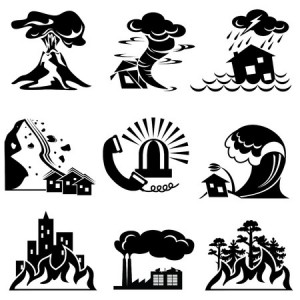WEF: Cooperation, risk reduction urged in face of natural disasters

“Natural disasters are stumbling blocks for the sustainability of economic growth in this region, we have to find solutions and we should have mutual collaboration,” Takeshi Niinami, Chief Executive Officer and Representative Director, Lawson, Japan said during the opening press conference of the WEF Co-Chairs.
“Natural disasters are the highest risk factor for this region, we should work together so as to minimize the risk and increase capability of the resilience. Lots of countries have experienced this issue already, and we should share the experience and the knowhow,” he said.
Super Typhoon “Yolanda” (international name Haiyan) was cited as a disaster that is evidence of the visible effects of climate change. Yolanda caused widespread damage throughout the central Visayas region devastating residential, business, and agriculture areas that slowed economic growth on a national level.
Yolanda Kakabadse, President of World Wide Fund for Nature, said that a country’s “natural capital” needs to be secured and protected to ensure the long-term sustainability of a country’s economy.
“If another Yolanda comes, we don’t want to have the same results, we want to be prepared,” she said.
Article continues after this advertisement“We need to do something about our natural capital which includes our fisheries, forests, water, without these we cannot survive as a species and in production, in being able to feed ourselves and to improve the quality of life of all the population,” Kakabadse said.
Article continues after this advertisementAtsutoshi Nishida, Chairman of the Board, Toshiba Corporation, Japan stressed the need for climate-smart economic growth saying that the environmental issues encountered in current times did not yet exist in the 20th century.
“Climate change is not just a problem of countries in Asean, it’s a problem of all countries in the world, and this is a completely new phenomena in the 21st century that we are encountering for the first time,” he said.
“I would like many people to understand this climate issue together with energy issue, they should be discussed together,” he said.
RELATED STORY
Political stability, better infrastructure keys to East Asia growth